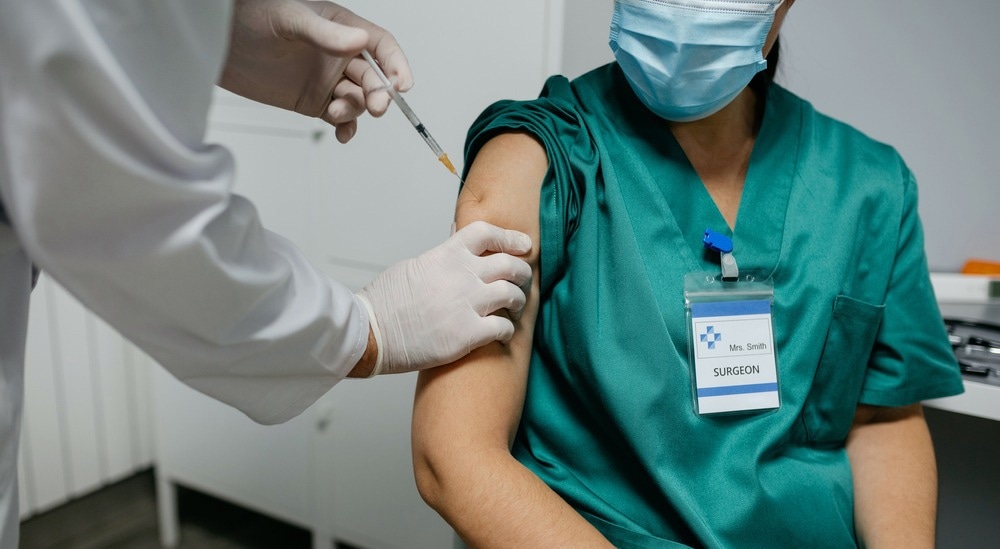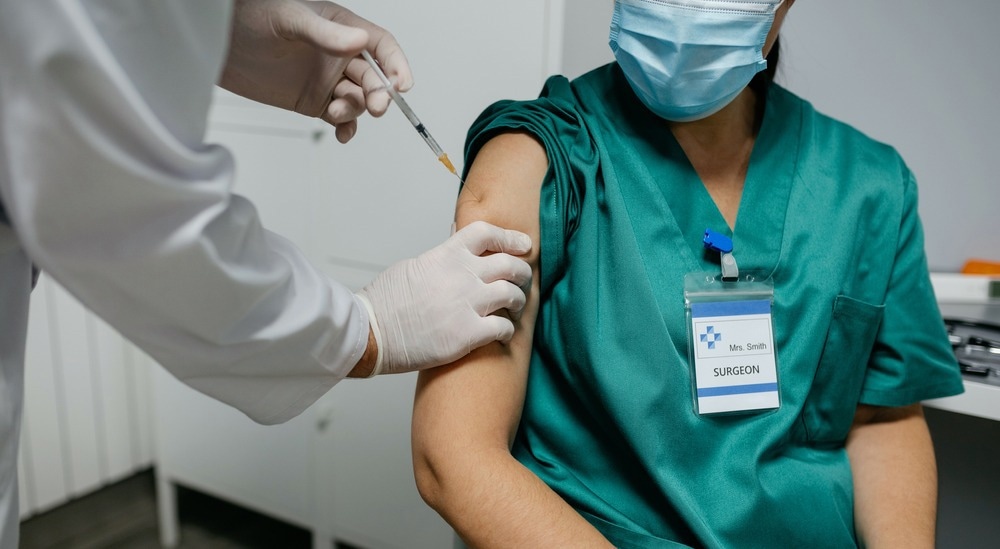In a recent study posted to the Research Square* preprint server, researchers reported the waning of antibodies against severe acute respiratory syndrome coronavirus 2 (SARS-CoV-2) in the six months following a booster dose of the messenger ribonucleic acid (mRNA) coronavirus disease 2019 (COVID-19) vaccine. They noted a three-fold decrease in the reactivity of vaccine-elicited antibodies against the Omicron BA.1 and BA.2 variants.

Background
The COVID-19 mRNA vaccines BNT162b (Pfizer BioNTech) and mRNA-1273 (Moderna) have elicited effective immune responses against the targeted strains of SARS-CoV-2 after the two-dose primary vaccination. However, waning immunity of the primary doses and the emergence of new immune-evading Omicron subvariants have challenged the efficacy of the vaccine.
The United States (U.S.) Food and Drug Administration (FDA) has approved a booster dose to increase protection against infections from Omicron subvariants. Although studies have shown that a booster dose significantly increases the neutralizing antibodies, the neutralizing capacity of these antibodies against different SARS-CoV-2 variants is known to differ.
Therefore, an assessment of the durability of booster dose-induced neutralizing antibodies is essential for formulating public health policies on booster vaccinations.
About the study
In the present study, the researchers recruited 323 healthcare workers from Orange County, California, vaccinated with two primary doses of the BNT162b or mRNA-1273 vaccine. Serological testing of blood samples was conducted before administering the booster dose and at multiple time points up to six months following the booster vaccine. Information such as demographic data, testing frequency, characteristics related to work, symptom history, and exposure risk was gathered through surveys.
A coronavirus antigen microarray was used to measure the immunoglobulin (Ig) G and IgM antibodies against a panel of 37 antigens, including those from SARS-CoV-2 and other coronaviruses and respiratory viruses.
The antigen panel comprised 10 SARS-CoV-2 antigens, including different fragments of the spike protein and the nucleocapsid protein, as well as four severe acute respiratory syndrome (SARS), three Middle East respiratory syndrome (MERS), 12 common coronaviruses, and eight influenzas virus antigens.
A surrogate virus neutralization test was used to determine the neutralization capacity of the anti-SARS-CoV-2 antibodies. The serum samples from a subset of the participants were also measured for antibodies against the spike protein receptor binding domain of the ancestral Wuhan-Hu-1 strain, the Delta variant, and the Omicron BA.1 and BA.2 subvariants. Additionally, a pseudoneutralization assay was used to determine the correlation between neutralizing and binding antibodies.
Results
The results reported an increase in the IgG antibody levels in the two weeks following the administration of the booster dose and continuing up to two months. However, between the second and the fourth month, the antibody levels were seen to decrease significantly. The waning of the antibodies continued till the sixth month from the booster dose, but the antibody titers at the end of six months remained higher than the pre-booster dose levels.
Healthcare workers with a history of SARS-CoV-2 infections had higher antibody titers at four and six months after the booster dose than those who did not have previous SARS-CoV-2 infections. Additionally, participants with severe vaccination side effects also had significantly higher levels of antibodies at two- and four-months post-booster than those with no side effects.
The advanced microarray analysis on the serum samples from a subset of the participants revealed that before the booster dose, the antibody titers against the Wuhan-Hu-1 strain were similar to those against the Delta variant. Still, the antibody levels against the Omicron subvariants were significantly lower.
In the two weeks following the booster dose, the antibodies against the Delta variant and the Omicron subvariants underwent a 1.3-fold and six-fold reduction, respectively, compared to the antibodies against the ancestral strain. This trend was observed till the six-month time point.
Similar to the trend seen in antibody levels, the neutralization capacity also increased up to two months following the administration of the booster dose and then decreased till the sixth month. The pseudoneutralization assay reported a correlation between binding and neutralizing antibodies.
Conclusions
Overall, the results indicated that the antibody levels and neutralization capacity increased significantly up to two months after the booster dose of the mRNA vaccine and then waned. Furthermore, the booster dose significantly increased the antibodies against the ancestral strain, but the antibodies against the Delta variant and Omicron subvariants decreased by 1.3- and six-fold, respectively.
Individuals with hybrid immunity from vaccinations and previous SARS-CoV-2 infections had more robust antibody responses than those without a history of SARS-CoV-2 infections. The development of variant-specific vaccines is necessary to prevent breakthrough infections.
*Important notice
Research Square publishes preliminary scientific reports that are not peer-reviewed and, therefore, should not be regarded as conclusive, guide clinical practice/health-related behavior, or treated as established information.









